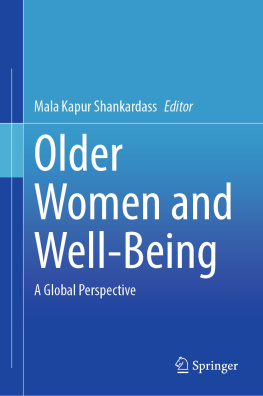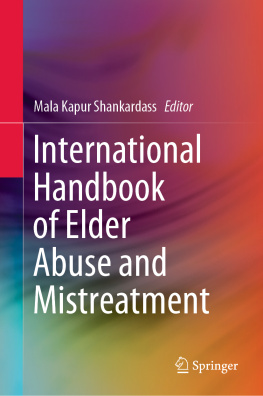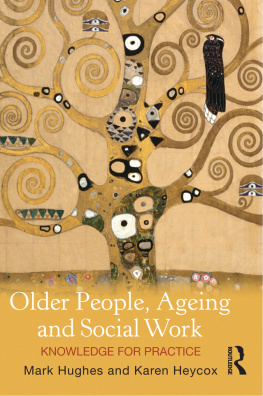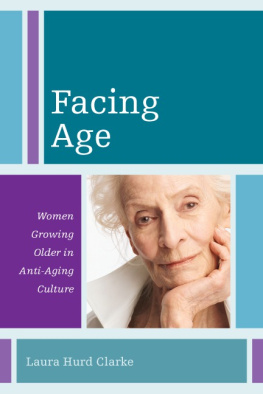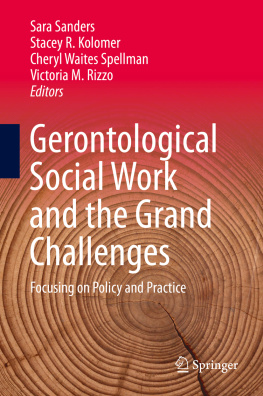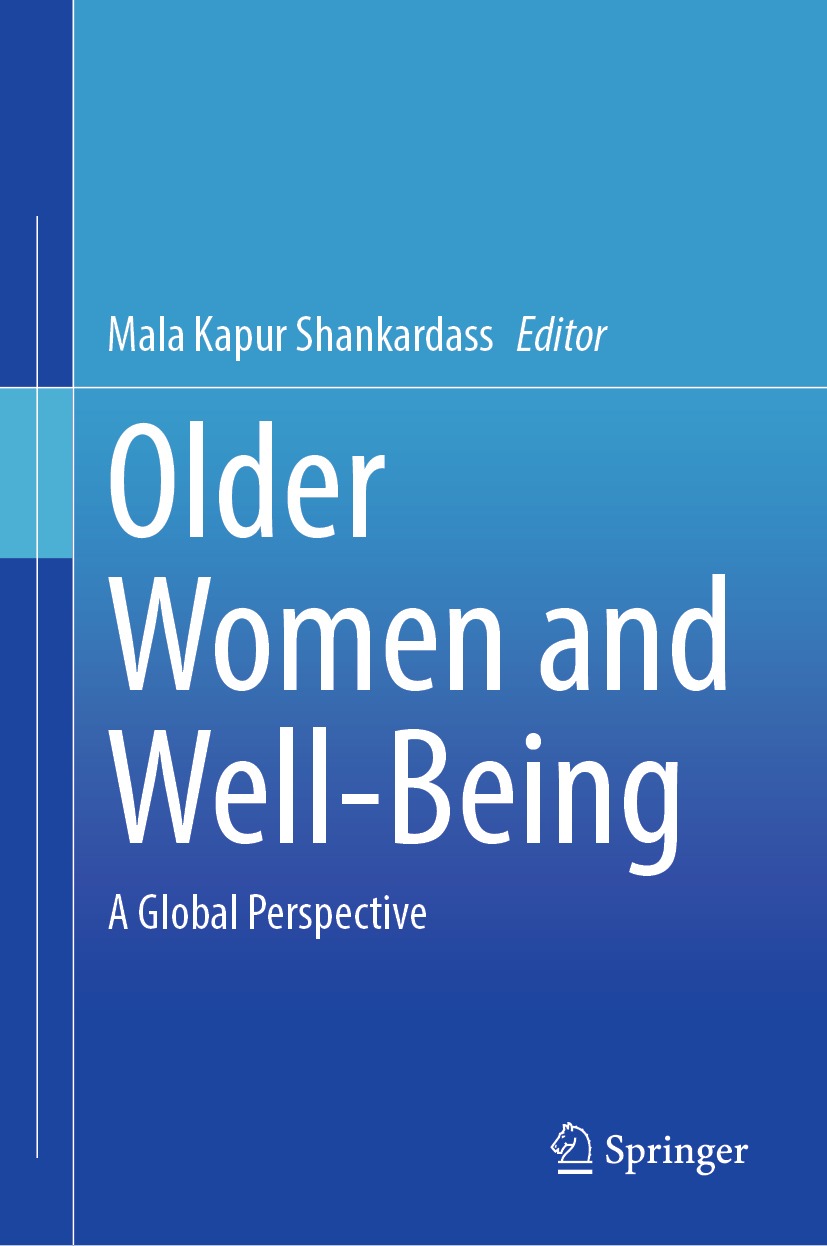Editor
Mala Kapur Shankardass
Independent International Consultant, New Delhi, Delhi, India
ISBN 978-981-16-4604-1 e-ISBN 978-981-16-4605-8
https://doi.org/10.1007/978-981-16-4605-8
The Editor(s) (if applicable) and The Author(s), under exclusive license to Springer Nature Singapore Pte Ltd. 2021
This work is subject to copyright. All rights are solely and exclusively licensed by the Publisher, whether the whole or part of the material is concerned, specifically the rights of translation, reprinting, reuse of illustrations, recitation, broadcasting, reproduction on microfilms or in any other physical way, and transmission or information storage and retrieval, electronic adaptation, computer software, or by similar or dissimilar methodology now known or hereafter developed.
The use of general descriptive names, registered names, trademarks, service marks, etc. in this publication does not imply, even in the absence of a specific statement, that such names are exempt from the relevant protective laws and regulations and therefore free for general use.
The publisher, the authors and the editors are safe to assume that the advice and information in this book are believed to be true and accurate at the date of publication. Neither the publisher nor the authors or the editors give a warranty, expressed or implied, with respect to the material contained herein or for any errors or omissions that may have been made. The publisher remains neutral with regard to jurisdictional claims in published maps and institutional affiliations.
This Springer imprint is published by the registered company Springer Nature Singapore Pte Ltd.
The registered company address is: 152 Beach Road, #21-01/04 Gateway East, Singapore 189721, Singapore
Acknowledgements
The making of this book begins with watching many older women around who show many different characteristics reflecting sorrows, happiness, resilience, courage, strength as well as weakness in dealing with life in their own ways. The responses seen to concerns related to their well-being from different socio-cultural contexts in my opinion called for certain scholarship to discuss these aspects stemming from individual, societal, or administrative levels. This book brought together experts working on this topic from different parts of the world, and I am grateful to each one of them for their significant and meaningful contribution. The work of different scholars has made this volume rich in substance and content, and I am extremely appreciative of each one of them for making this possible.
I would also like to thank two young budding researchers Aryaman Chand and Khushi Chandani who helped with bibliography search for literature on older women and interactions with whom provided the necessary enthusiasm for taking this project forward. Their timely, well-organized, and properly executed help was encouraging and much needed to give shape to my thoughts about concerns and responses toward the well-being of older women.
This section would not be complete without acknowledging the support extended by Satvinder Kaur and the publishing team of Springer Nature to fruitfully take forward the delivery of this academic project on older women which will interest a broad cross section of the population wanting to give visibility to issues related to older women. In this attempt of reaching out to a wider audience by bringing focus on older women, I also need to thank all my family members, including my husband, my son, daughter-in-law, little grandson, and extended clan of siblings for their support and necessary distractions to improve my concentration for this worthy project and focus. I enjoyed working on this and am grateful to all who contributed toward its successful completion.
Contents
Mala Kapur Shankardass
Bhavika Thakkar
Lauren M. Bouchard , Lydia Manning and Michael J. Pessman
Caroline Pelletier , Marie Beaulieu and Franoise le Borgne-Uguen
Meena Yadav
Avinash De Sousa
Isabel Iborra-Marmolejo , Julie Van Hoey and Mara Jos Beneyto-Arrojo
S. Jayashree and K. Rajendra
Archana Kaushik
Mayling Oey-Gardiner
Sandhya Gupta and Navneet Kaur Baidwan
Rosette Farrugia-Bonello
Avinash De Sousa and Bhumika Shah
Tania Farooq , Shazia Manzoor and Saima Farhad
Smita Bammidi
Murli Desai
Vanessa L. Hill and Vinu Ilakkuvan
Sudeshna Mukherjee and Veena H. Kattegowdar
Bharti Birla
Dominique Predali
Patricia Brownell and Denise Gosselin
The Author(s), under exclusive license to Springer Nature Singapore Pte Ltd. 2021
M. K. Shankardass (ed.) Older Women and Well-Being https://doi.org/10.1007/978-981-16-4605-8_1
1. Older Women: Global Concerns and Responses Toward Their Well-Being, Is a Serious IssueAn Introductory Note
Mala Kapur Shankardass
(1)
Managing Trustee, Development, Welfare and Research Foundation, New Delhi, India
Abstract
Older women are generally regarded with negativity, but this needs to be overcome. There is increasing need for their concerns to be heard, responses generated toward improving their well-being and they be given respect and status in society. There are many strengths and resilience which older women bring in their lives, and these aspects need to be acknowledged by generating policy and societal response toward their well-being. This chapter with focus on older womens lives, on their images in society, on identifying their problems and concerns discusses the need for proactive practices, policies, and programs which enhance their status in society and contribute to toward giving them respect and dignity. The chapter points to difficulties older women face in their private lives, working situations, in relationships with different sections of society. The chapter puts forth an agenda which overcomes gender discrimination, fights ageism, removes barriers in health and social fields, and provides a positive approach toward recognizing their potential and their contributions in society. The analysis presented here adopts a development and human rights-oriented approach.

